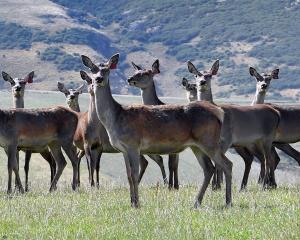
The Gore District Council lifted its do-not-drink notice about 8pm yesterday, after testing results showed nitrate levels trending well below the maximum acceptable value of 11.3mg per litre for the third consecutive day.
Testing was conducted twice yesterday by the council’s accredited testing lab and results showed a continued reduction in nitrate levels.
The district council issued an alert on Friday night advising residents not to drink tap water.
This was because of high nitrate levels in the water at Coopers Well, 0.1% over the limit, which continued at the weekend. The town’s drinking water comes from Coopers Well and Jacobstown Wells.
The council’s website says the two well fields are separated by the Mataura River and are located in the river’s flood plain.
Coopers Wells is about 5km northeast of Gore, surrounded by a dairy farm.
Environment Southland said in a statement it was investigating the groundwater at Coopers Well and surrounding areas.
However, Greenpeace Aotearoa issued a warning and spokesman Will Appelbe called out the farming community.
"The main source of this contamination is the intensive dairy industry — in particular, the overuse of synthetic nitrogen fertiliser," he said.
Mr Appelbe stated the nitrate levels in Gore’s drinking water were only the beginning, as central government continued to relax standards on synthetic fertilisers.
"It is absolutely unacceptable that rural communities are unable to drink the water coming out of their kitchen tap — and this is happening more and more frequently," he said.
"Removing limits on fertiliser use will worsen the drinking water crisis and it’s only a matter of time before it proves to be dangerous.
"We’re calling on this government to make decisions that will protect rural communities’ access to safe drinking water."
Federated Farmers Southland president Jason Herrick said Greenpeace was throwing out shots unfairly to promote its own agenda.
"I don’t think it’s a fair assessment. Greenpeace, they stick to one narrative and one ideological view and pick on something where it fits what they are trying to target."
Mr Herrick defended the use of synthetic nitrogen fertilisers. He said farmers adhered to the cap and it was too early to play the blame game.
"I would say majority of farmers are using it responsibly. We’ll just have to wait and see what comes out of the investigation."
Mr Herrick said nitrate could come from many sources and it was important to wait to see the results of the regional council’s contamination investigation.
"I don’t believe farmers would purposely go out and destroy the environment. We rely on the environment to continue farming."












